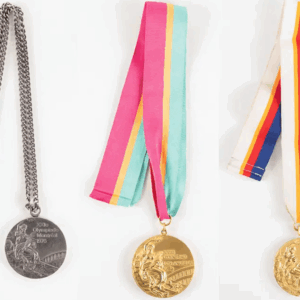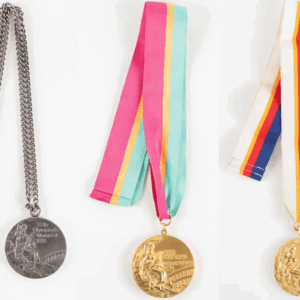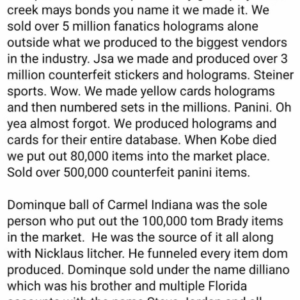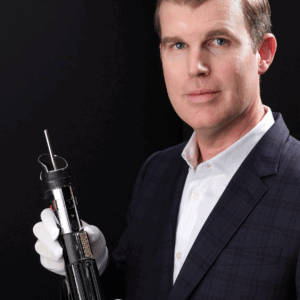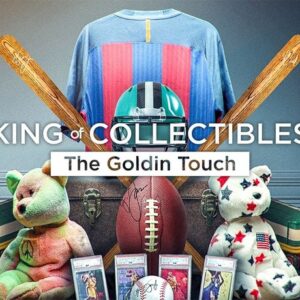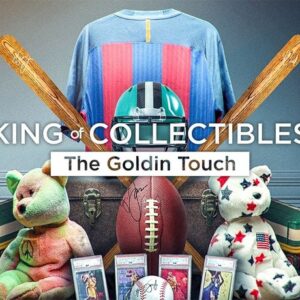In the generally serene state of Indiana, under the radar of avid sports fans and memorabilia enthusiasts, an epic scandal has come to light that rivals any sports drama. Brett Lemieux, an autograph dealer with a seemingly impressive portfolio of authentic signatures and collectibles, has now become an infamous figure at the heart of an astonishing counterfeit operation. This week, authorities raided a site in Westfield, revealing a scheme that not only shakes the local community but also sends ripples throughout the international network of sports memorabilia collectors.
Brett Lemieux, aged 45, was found dead from what officers say was a self-inflicted gunshot wound during the execution of a search warrant. His demise, however, is but a footnote in the annals of this operation’s shocking narrative. Immediately preceding his death, there was an eerie online confession attributed to him that surfaced in the “Autographs 101” Facebook group—an admission so unbelievable it reads like a thriller novel. According to the post, his counterfeiting ring had infiltrated the market with more than four million phony sports items, deceptively generating claims of $350 million in illegal sales.
Marketed under the brand name Mister Mancave, Lemieux styled himself as a colossus in the trade, boasting “the largest framed jersey inventory on the web.” Yet behind these claims and his Columbus, Ohio address, no brick-and-mortar store could be traced. On the surface, Mister Mancave seemed like yet another tantalizing treasure trove for collectors. But the reality, according to allegations, was a Pandora’s box of trickery opening upon the unknowing customer base.
Lemieux’s operation, if the allegations are true, was a masterclass in duplicity. Its formidable strength lay in its ability to forge legitimacy—specifically, in the hologram stickers considered a seal of authenticity by esteemed companies like Panini, Fanatics, and others of their ilk. The infamous incident following Kobe Bryant’s tragic death in 2020 marked a striking claim from Lemieux; he reportedly flooded the market with 80,000 fake Bryant memorabilia items, slipping them seamlessly into collections worldwide. The appearance of legitimacy, with holograms gleaming with false promises of authenticity, duped even the most seasoned collectors.
And it wasn’t just the basketball world caught in his web. Lemieux’s inventory spanned the spectrum of sports fandom. Picture an Aaron Judge-signed baseball, launching out of the park not with memorabilia romance, but with deceit, priced enticingly low at $399 when Fanatics’ official offering stood at $699—a cunning undercut that masked the fraudulent nature behind a facade.
As the memorabilia market grapples with disbelief and betrayal, significant entities like Fanatics committed to overhauling their hologram technologies. Their war with counterfeiting sharpened its lines, turning to collaborative efforts with fraud experts and ex-FBI agents, arming themselves to safeguard authenticity and trust in collectors’ hearts.
Some experts and rivals have questioned the gargantuan numbers Lemieux flaunted in his confessions. One critical voice labeled the $350 million sales as “impossible,” yet the impact of this crafty operation is undeniably profound. Steve Grad, a credentialed authority in autograph authentication, draws attention to the treacherous ground they tread. With forgery tools evolving—like autopens that mirror the hand-signed look—the challenge remains herculean in maintaining a believability barrier strong enough to ward off fakes.
Within the industry’s buzzing corridors, whispers had long suggested foul play. Skeptics observed Lemieux’s possession of autographs, notably from athletes who hadn’t indulged in such signings publicly for some time. His name drops, including the likes of Dominique Ball in Indiana and Nickolas Litscher from Wisconsin—both claiming innocence—have resulted in a legal whirlwind, hinting at the enigmatic web of this sordid saga.
As we piece through Lemieux’s layers of deceit, uncovering sales channels like Ultimate Sports and Signature Dog, one truth crystallizes gradually: beyond the economic mess, collectors globally now face a heartbreaking reassessment of their cherished collections. Each frame and autograph now carries not just stories of sports legends but layered doubts of authenticity—the lingering aftershocks of Lemieux’s scandalous enterprise.
This seismic revelation stands as a historic caution within the memorabilia realm, emphasizing more than ever the essential vigilance needed. It’s a potent backdrop against which the industry prosecutes its continuous battle against counterfeiters—a tale of tragedy, deception, and the hope for renewed transparency in a market that defines nostalgia and legacy.

